

Roundtable Discussion Series on Sustainable Food and Agriculture Systems in Southeast Asia
The Southeast Asian Regional Center for Graduate Study and Research in Agriculture (SEARCA) and Bangko Sentral ng Pilipinas (BSP) partnered for the conduct of the Roundtable Discussion Series on Sustainable Food and Agriculture Systems in Southeast Asia on 18-19 April 2023 at the Philippine International Convention Center (PICC) in Manila, Philippines.
Held face-to-face and livestreamed via Zoom and Facebook, the Roundtable Discussion (RTD) Series offered a platform to gather agriculture and rural development (ARD) experts and practitioners to discuss related emerging issues and concerns, gaps, and opportunities related to ensuring sustainable food and agriculture systems in the region. This hybrid event presented two RTDs:
Digital Economies for the Food and Agriculture Sector
- Harnessing the potential of digital economies and its role in ensuring a strong and flexible economy, supply, and value chains despite sudden demand shifts, extreme weather events, and other uncertainties
- How digital technologies can be used to improve financial inclusion and enable smallholder farmers to invest and participate in digital economies
Promoting Carbon Farming in Agriculture in Southeast Asia through Regional Cooperation
- Establishing a centralized carbon farming center to collect, mine, and analyze data related to carbon farming from Southeast Asian countries
- Viable carbon farming models in agricultural systems using climate-smart technologies that reduce carbon emissions, which can be used and sold as carbon credits, an additional income stream for farmers
Day 1
RTD on Digital Economies for the Food and Agriculture Sector
- PICC, Manila, Philippines
- 18 April 2023, 8:30 a.m.
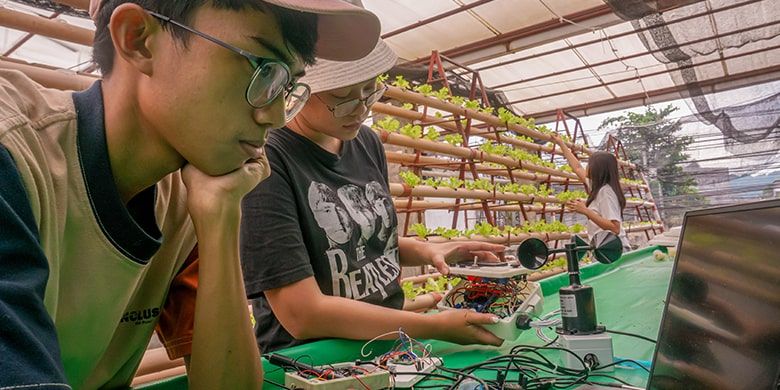
Objectives
- Facilitate broader and deeper understanding of the current status and trends in digital economies, including digital financial inclusion and adoption in Southeast Asia's agricultural sector
- Identify gaps, barriers, and challenges, and explore new opportunities for innovation to enable digital economies and improve access, new pathways and innovative solutions for smallholder farmers in Southeast Asia
- Recommend enabling policies and regulations for shared regional mandates/goals and programs in innovative financial services to increase preparedness for future shocks and ensure resilience and sustainability during critical situations like pandemics or during times of natural disasters
Sessions
- Digital tools for an interconnected food and agriculture sector
Coming from different perspectives, the panel of experts will initially provide insights on the status of digital economies, especially available tools and platforms currently used in the food and agricultural system. This would initiate discussions on how these digital innovations are being used to address challenges that the sector face including disruptions in food supply chains (production, processing, and distribution) during critical situations like pandemics or times of natural disasters. - Addressing gaps, improving access, exploring new opportunities
Taking off from the previous session, the discussion that will follow will further identify gaps that need to be addressed and opportunities to enhance access to digital services and creation of new pathways and innovative solutions for the unserved and underserved sector of the economy, including smallholder farmers, in the region. - Making it Work Together
Taking into consideration the lessons from the previous sessions and the ASEAN Guidelines on the Utilization of Digital Technologies, panelists will lead the discussion on identifying shared regional goals/programs, enabling policies, infrastructure support, and regulatory mechanisms to improve the continuous development and accessibility of innovations as part of digital economies in the food and agricultural sector.
Program
| Time | Activity | Resource Person/Facilitator |
|---|---|---|
| 8:30–9:00 a.m. (GMT +8:00) | Assembly/Registration | Secretariat |
| 9:00–9:40 a.m. | Opening messages | Dr. Glenn Gregorio Dr. V. Bruce Tolentino |
| 9:40–10:00 a.m. | Brief overview of the ASEAN Guidelines on Promoting the Utilization of Digital Technologies for ASEAN Food and Agricultural Sector | Dr. Nerlita Manalili Technical Expert, Developing ASEAN Guidelines for Accelerating Transformation of Food and Agriculture through Digital Technologies and Innovations |
| 10:00–10:30 a.m. | Group photo | |
| 10:30 a.m.– 12:00 p.m. | Thematic Area 1 Digital tools for an interconnected FAS | Moderator: Panelists:
|
| 12:00–1:00 p.m. | Lunch break | |
| 1:00–2:15 p.m. | Thematic Area 2 Addressing gaps, improving access, exploring new opportunities | Moderator: Panelists:
|
| 2:15–2:30 p.m. | Coffee break | |
| 2:30–3:45 p.m. | Thematic Area 3 Making it Work Together | Moderator: Panelists:
|
| 3:45–4:15 p.m. | SEARCA's Initiatives on Digital Knowledge Platforms | Dr. Gerlie Tatlonghari Program Head, Research and Thought Leadership Department, SEARCA |
| 4:15–5:00 p.m. | Identifying ways forward (via Mentimeter) | SEARCA |
| 5:00–5:30 p.m. | Wrap-up/Synthesis | Dr. Nur Azura Binti Adam Deputy Director for Programs, SEARCA |
| 5:30 p.m. | Networking cocktails | |
| Master of Ceremonies: Assoc. Prof. Joselito Florendo Deputy Director for Administration, SEARCA | ||
(Click to expand/hide)
Highlights
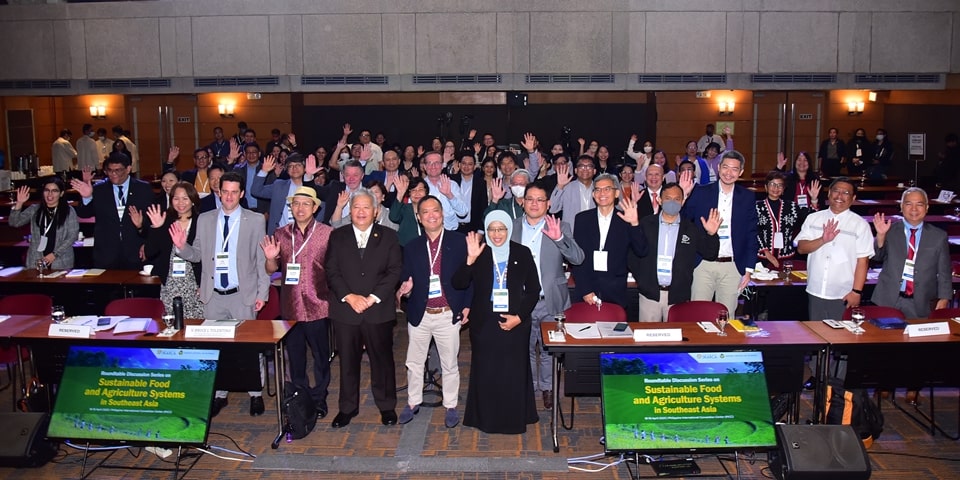
The tone of the first day of the RTD was set by revisiting the Association of Southeast Asian Nations (ASEAN) guidelines on promoting the use of digital technologies for the region's agri-food sector to aid users and innovators, and enable data-driven decision-making.
Invited experts shared their insights during three (3) thematic sessions that covered the role of digital economies in ensuring economic growth, strengthening flexible value chains to withstand climate and economic shocks, and promoting financial inclusion among smallholder farmers.
The first thematic session of RTD Day 1 focused on the use of digital tools and technologies to improve agriculture. Philippines Partnership for Sustainable Agriculture Country Director Amy Melissa Chua moderated the discussion among the panel of experts composed of Dr. Jose Ildefonso Rubrico, Professor, Department of Mathematics, Physics, and Computer Science, University of the Philippines (UP) Mindanao; Dr. Noppaden Khiripet, Principal Researcher at Thailand's National Electronics and Computer Technology Center; Mr. Henry James Sison, Founder and Chief Farming Officer of Agro-DigitalPH; and Mr. Frederick Nicasio Torres, President of CARD-Business Development Foundation Inc.
The session highlighted the areas where capacity-building is necessary to address gaps in digital literacy; the role of extension workers in knowledge transfer, and access to data and data sharing as enabling factors to bring about an interconnected agri-food sector. During the discussion, the panelists emphasized the importance of building trust in the use of digital tools through integrity and empathy.
The second thematic session touched on the need for market-oriented digital services that consider the gaps and opportunities in the food and agriculture sector. Dr. Tolentino served as the moderator for this panel discussion, which included Ms. Stephanie Orlino of Smart Communications, Inc.; Ms. Ellen Joyce Suficiencia, Director, Financial Inclusion Office, BSP; Mr. Matan Rahav, Vice-President for Business Development of CropX Technologies LTD, an Israel-based company; and Mr. David Chen, Chief Executive Officer, AgriG8, a Singapore-based company.
In this session, the panelists articulated success stories on the immediate benefits of technology and the need to provide incentives to encourage farmers and farming communities toward adopting more resilient and digital technologies. Public and private sector investments were likewise identified to bring about significant improvements in the digital ecosystem.
The third and last thematic session for RTD Day 1 stressed the importance of partnership in action to make digital economies work together. The discussions focused on ways to achieve harmonization in digitalization, such as strengthening awareness and knowledge of digitalization, developing protocols for sharing information, and future-proofing to prevent data theft.
Dr. Alexander Flor, Professor and University Scientist, Faculty of Information and Communication Studies, UP Open University, moderated this panel session comprised of technical experts, policymakers, and practitioners. The panelists included Dr. Nerlita Manalili, Technical Expert, Developing ASEAN Guidelines for Accelerating Transformation Food and Agriculture through Digital Technologies and Innovations; Dr. Rosemarie Edillon, Undersecretary for Policy and Planning, Philippine National Economic and Development Authority (NEDA); Mr. Supawat Komolmarl, Expert from the Bangladesh-based Centre on Integrated Rural Development for Asia and the Pacific; and Ms. Keren Moshelion, Chief Executive Officer, PlantDiTech, an Israeli firm.
The panelists emphasized the need to improve the data ecosystem and collect quality data using appropriate data collection methods. They also shared experiences and best practices from Thailand and Israel in terms of integrating agricultural data and making information available for the benefit of end users. A phased approach to adopting technologies was suggested to help close the technology gap between advanced and emerging countries.
Dr. Nur Azura Adam, SEARCA Deputy Director for Programs, capped the first day with a synthesis and said, "I hope today's discussions sparked new ideas on what we can do together in the future to create stronger agricultural communities by tapping into digital economies," Dr. Adam said.
Day 2
RTD on Promoting Carbon Farming in Agriculture in Southeast Asia through Regional Cooperation
- PICC, Manila, Philippines
- 19 April 2023, 8:00 a.m.
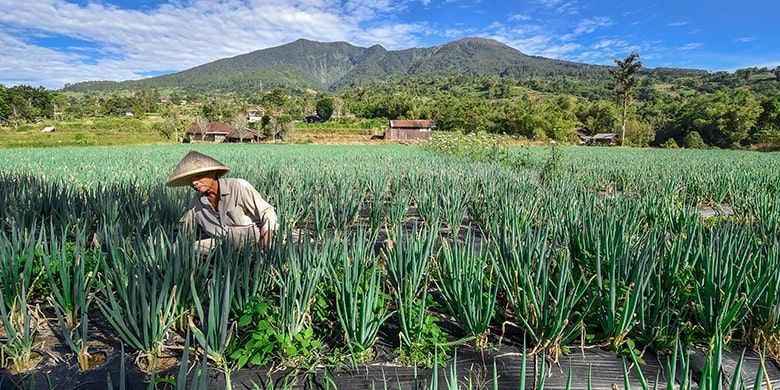
Objectives
- Consolidate the status, gaps, and opportunities of carbon farming leading to carbon credit and market in agriculture in Southeast Asia by showcasing and highlighting various initiatives, current policies and guidelines, financial schemes and investments, strategic lessons from institutional experiences, available data, technologies, and approaches both in the science and practice of climate resilient agriculture in the region, in the past five years
- Identify new opportunities for collaboration for carbon farming leading to carbon credit and market in Southeast Asia for a forward-looking and shared vision of a transformative climate resilient agriculture in the region
- Organize the Carbon Farming Consortium to foster regional cooperation and commitment to promote carbon farming in agriculture in Southeast Asia
Sessions
- Policy, standards, governance
Stocktaking of existing policies and strengthening business standards and documentation of best practices, financing and monitoring mechanisms including benefits and incentive systems supporting the economic, environmental, and social impacts of carbon farming in agriculture - Business models, investment, finance
Development of climate smart and financing mechanisms, including benefits and incentive systems for latest and new carbon farming systems technologies and practices leading to carbon credit and market in agriculture, to support the farmers and small and medium-sized enterprises (SMEs) - Climate research integration
Design and implementation of out-scaling and adoption of different carbon farming technologies, approaches, and practices in different agroecosystems leading to carbon credit and market - Digital systems
Promotion of the use of digital systems in piloting, refinement, and wide distribution of digital solutions for measuring, monitoring, reporting, and verifying carbon emissions in agriculture - Education, capacity building, and partnerships
Provision of transformative and interdisciplinary approaches to capacitate stakeholders, particularly farmers and women, and foster partnerships to adapt to climate impacts and reduce GHG emissions through carbon farming in agriculture
Program
| Time | Activity | Resource Person/Facilitator |
|---|---|---|
| 8:00–8:30 a.m. (GMT +8:00) | Registration | |
| 8:30–9:00 a.m. | Opening Program
|
Master of Ceremony Ms. Lyn Javier Ms. Alicia Ilaga |
| 9:00–9:45 a.m. | Plenary Session 1 Status of green financing and investment in Agriculture: Philippine context | Hon. Mark Dennis Joven Undersecretary for the International Finance Group, Department of Finance (DOF), Philippines |
| 9:45–10:00 a.m. | Plenary Session 2 SEARCA WISE Carbon Farming | Dr. Glenn Gregorio Director, SEARCA |
| 10:00–10:15 a.m. | Coffee break and group photo | |
| 10:15–11:15 a.m. | Thematic Area 1 Policy, Standards, Governance (PSG) | Moderator: Panelists:
|
| 11:15 a.m.– 12:15 p.m. | Thematic Area 2 Business models, Investment, Finance (BIF) | Moderator: Panelists:
|
| 12:15–1:15 p.m. | Lunch break and networking | |
| 1:15–2:15 p.m. | Thematic Area 3 Climate Research Integration (CRI) | Moderator: Panelists:
|
| 2:15–3:15 p.m. | Thematic Area 4 Digital Systems | Moderator: Panelists:
|
| 3:15–3:30 p.m. | Coffee break | |
| 3:30–4:30 p.m. | Thematic Area 5 Education, Capacity Building and Partnerships | Moderator: Panelists:
|
| 4:30–4:45 p.m. | Synthesis and way forward | Dr. Nur Azura Binti Adam Deputy Director for Programs, SEARCA |
| 4:45–5:00 p.m. | Declaration of the SEA Carbon Farming Consortium (SEA CAF) | Dr. Glenn Gregorio Dr. V. Bruce Tolentino |
| 5:00–5:30 p.m. | Closing Remarks | Ms. Chuchi Fonacier Deputy Governor, BSP |
| 5:30 p.m. | Cocktails/Networking | |
| Master of Ceremonies: Assoc. Prof. Joselito Florendo Deputy Director for Administration, SEARCA | ||
(Click to expand/hide)
Highlights
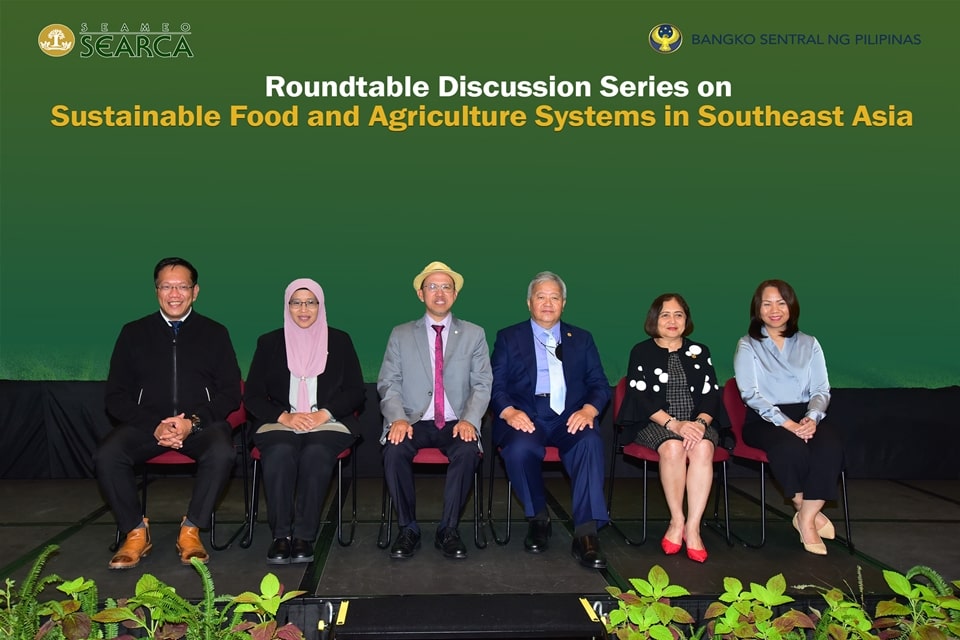
The second day of the RTD was devoted to the stocktaking of the status, gaps, and opportunities in carbon farming in agriculture in Southeast Asia, with the view of establishing mechanisms for carbon credits and developing a market that will benefit smallholder farmers. The plenary sessions contextualized technical and financial initiatives in Southeast Asia relevant to carbon farming in agriculture.
Assistant Governor Lyn I. Javier of the BSP and Director Alicia Ilaga, Climate-Resilient Agriculture Office, Department of Agriculture (DA), led the opening of the RTD.
In her speech, BSP Assistant Governor Javier emphasized the need to adopt climate-smart solutions for the Philippines to achieve its seventy-five percent (75%) greenhouse gas emissions reduction target by 2030. Likewise, DA Director Ilaga stressed the urgency of the climate crisis being faced and the need for collective and wide-scale actions to address the same.
During the first plenary session, Undersecretary Mark Dennis Joven of the Philippine Department of Finance shared various efforts of the Philippine government in mobilizing finance for green and sustainable projects. He highlighted the importance of stakeholders' participation in climate change financing and enumerated ways forward, including building the capacity of local government units to formulate and implement green projects, deepening financial markets to enable green financing to flourish, and facilitating investments to support the implementation of the country’s Nationally Determined Contributions.
Meanwhile, in the second plenary session, Dr. Gregorio introduced SEARCA’s initiative on Web-based Integrated and Spatial Engine and Smart Ecosystem (WISE) Carbon Farming. This initiative will provide a platform and a set of standards to offer carbon credits to farmers as an added income stream. He added that WISE Carbon Farming is intended to improve carbon farming models of climate-smart technologies and approaches under Southeast Asian conditions and increase their adoption by farmers.
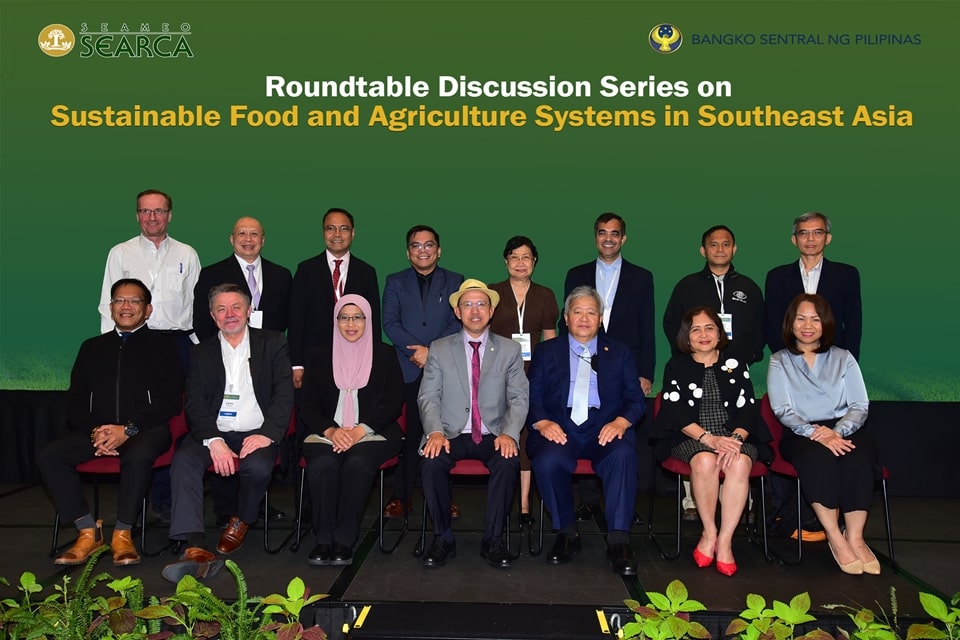
RTD Day 2 was composed of five (5) thematic sessions. The first session was moderated by Dr. Claro Mingala, Scientist III, Officer-in-Charge – Deputy Executive Director for Production and Research of DA. It focused on carbon crediting, policies and guidelines for sustainable and resilient agriculture, and lessons learned from nature-based solutions projects in Southeast Asia.
The panelists for the first thematic session were Dr. Reiner Wassmann, SEARCA Senior Fellow; Mr. Rory Jay Dacumos, OIC-Assistant Director at NEDA; and Dr. Jake Brunner, Head for Lower Mekong Subregion, International Union for Conservation of Nature. The first session dealt with the challenges in implementing the Clean Development Mechanism in rice, such as a lack of standardized guidance for methane measurements and field stratification. The panelists accentuated the significance of business models, investment, and finance in driving initiatives in the agriculture sector.
The second thematic session of RTD Day 2 was moderated by Ms. Irene Maranan, Vice President of Ayala Corporation Energy. The panelists for this session included Mr. Marc Dumas-Johansen, Agriculture and Food Security Specialist at the Green Climate Fund (GCF), and Andres Ruba Jr., Vice President and Division Head, Agribusiness and Luzon Commercial Credit at the Bank of the Philippine Islands.
During the discussion, Mr. Dumas-Johansen underscored the critical role that GCF plays in supporting developing countries in transforming their agriculture and food systems towards low-emission, climate-resilient approaches. Likewise, Mr. Ruba, Jr. highlighted the role of banks in providing climate financing for programs and projects that promote climate resilience.
The third thematic session looked into the out-scaling and adoption of different carbon farming technologies, approaches, and practices in different agroecosystems leading to a carbon credit and market that will be designed and implemented together with farmer partners and other stakeholders.
Dr. Rico Ancog, Professor and Dean of the School of Environmental Science and Management, UP Los Baños (UPLB), moderated the panel discussion which included Dr. Roger Hegarty, Professor at the University of New England; Dr. Rodel Lasco, Executive Director of Oscar M. Lopez Center; and Dr. Virender Kumar, Deputy Platform Leader and Senior Scientist, Sustainable Impact Platform, International Rice Research Institute (IRRI).
The panelists emphasized the importance of operationalizing research, improving productivity by adopting technologies that would improve income while lowering emission intensity, as well as developing enabling policies that would incentivize farmers.
The fourth session elaborated on digital tools for integrated food and agricultural systems. Dr. Nathaniel Bantayan, UPLB Vice Chancellor for Research and Extension served as the moderator for this panel discussion composed of Dr. Eero Nissila, Managing Director of Newfields Consulting Inc., a Finnish company; Dr. Thomas Jaekel, GIZ-CIM/IRRI Development Specialist I-Rice Partnership (CIM Integrated Expert) at Thailand’s Rice Department; and Mr. David Chen of Singapore-based AgriG8.
The panelists highlighted the importance of a technological leap in mechanization and digitalization as a major structural change needed in Southeast Asian agriculture by 2030.
The fifth and the last session focused on education, capacity building, and partnerships for wise carbon farming. It highlighted the importance of research project outputs or results serving as inputs in higher education curricula.
Dr. Maria Cristeta Cuaresma, SEARCA Senior Program Head for Education and Collective Learning, moderated this panel discussion comprised of experts including Dr. Roland Treitler, Project Director and Principal Advisor, ASEAN German Climate Action Programme, GIZ GmBH, Indonesia; Dr. Isabelle Providoli, Senior Research Scientist, Centre for Development and Environment at University of Bern, Switzerland; Dr. Eleanor Milne, Affiliate Scientist and Independent Consultant, Colorado State University; and Dr. Buncha Chinnasri, Assistant to the President for Quality Development, Kasetsart University, Thailand.
The panelists shared their experiences in embedding sustainable agriculture topics in higher education and beyond and introduced various tools and training courses for estimating carbon and GHG emissions and sustainable land use management. Likewise, they emphasized the need to focus the curriculum on sustainable production and the importance of training various stakeholders, including the public sector, youth, women, private sector, nongovernmental organizations, decision-makers, and policymakers.